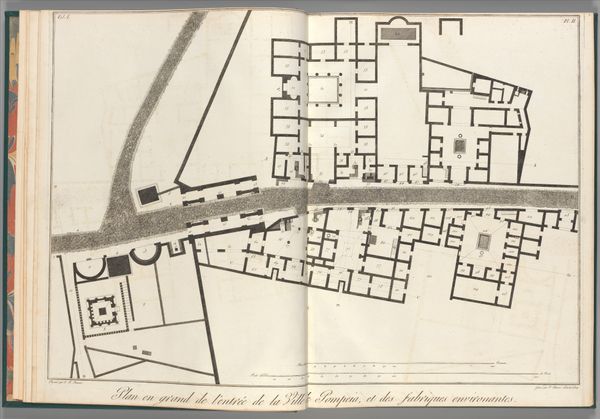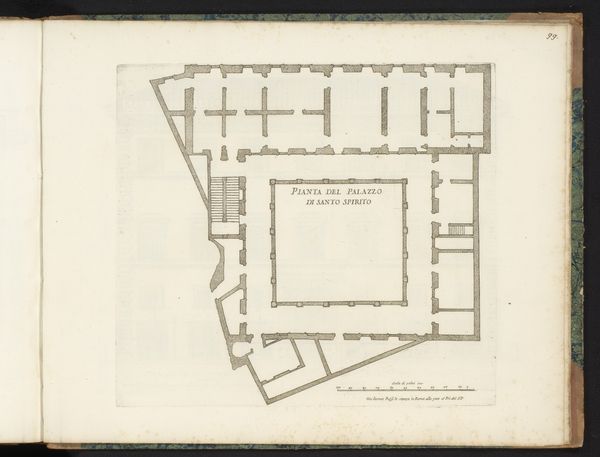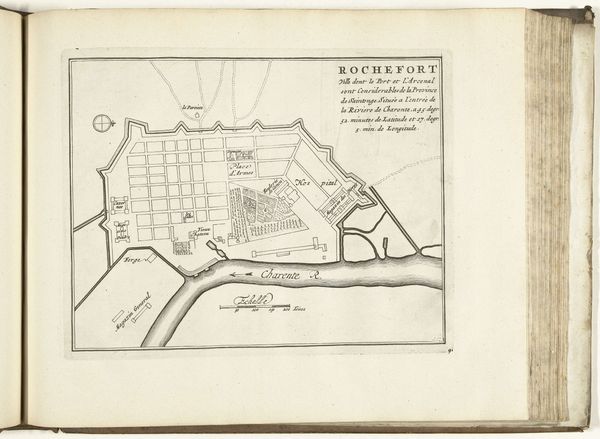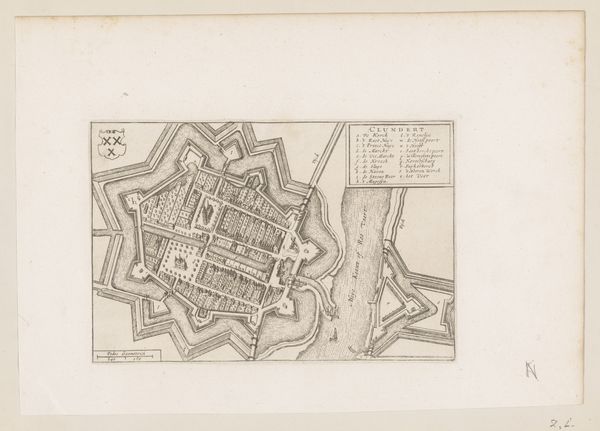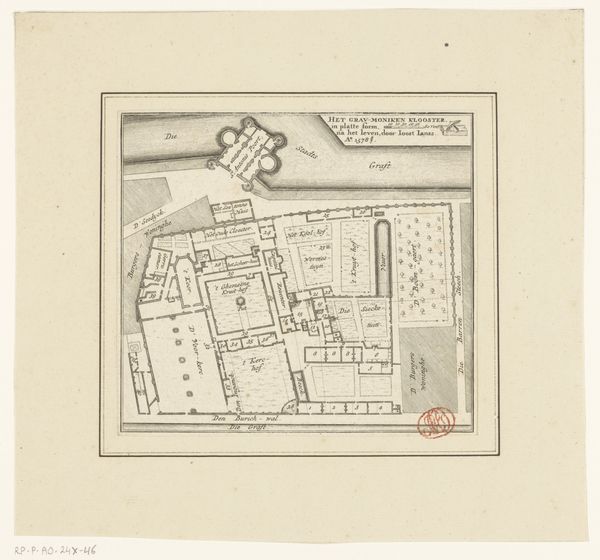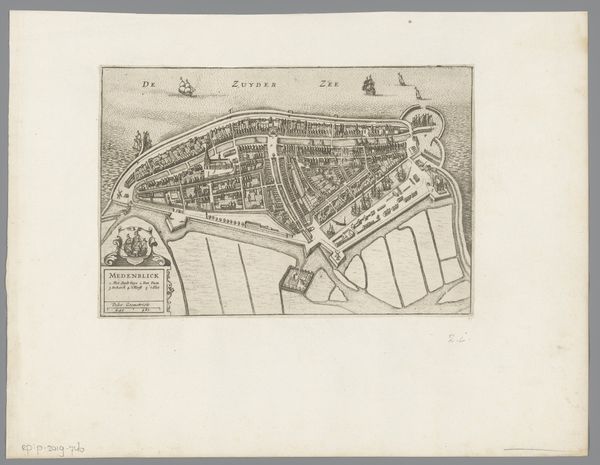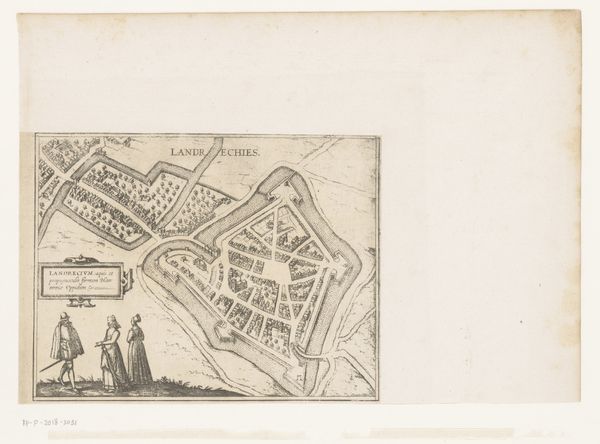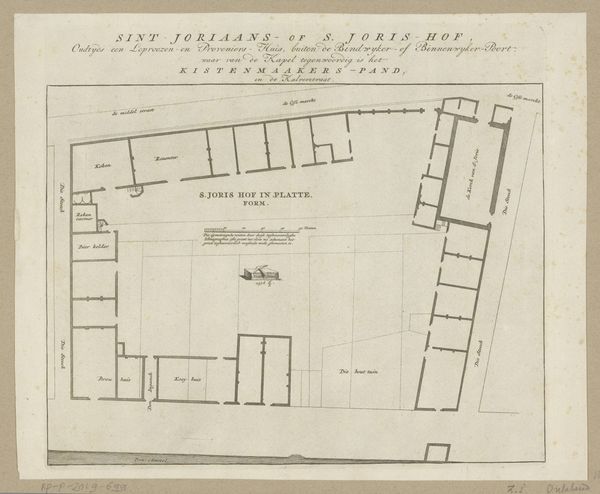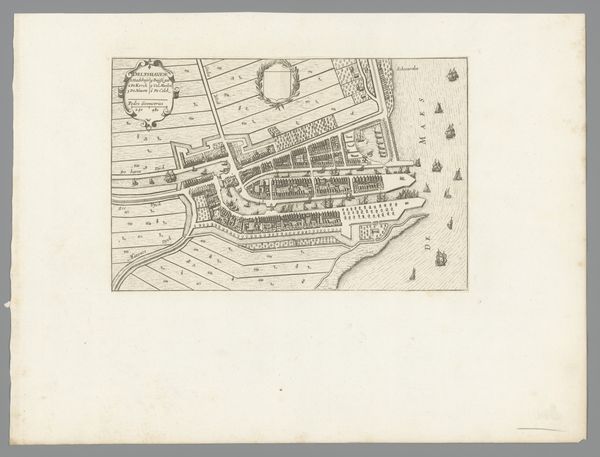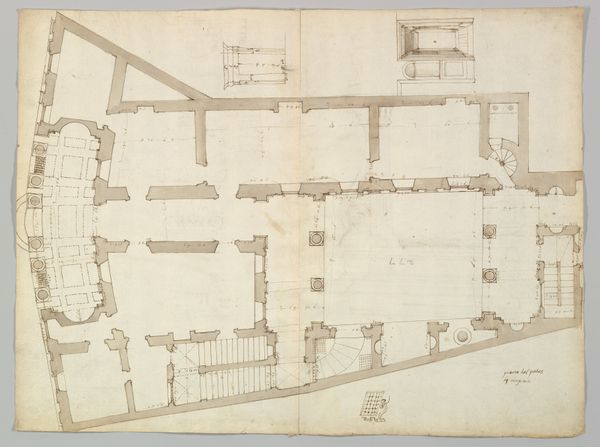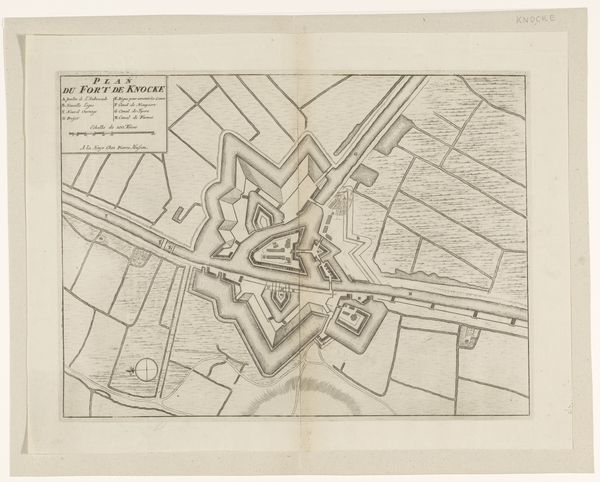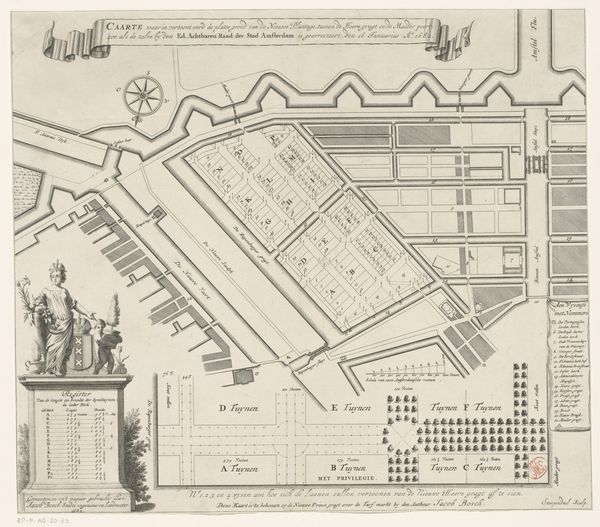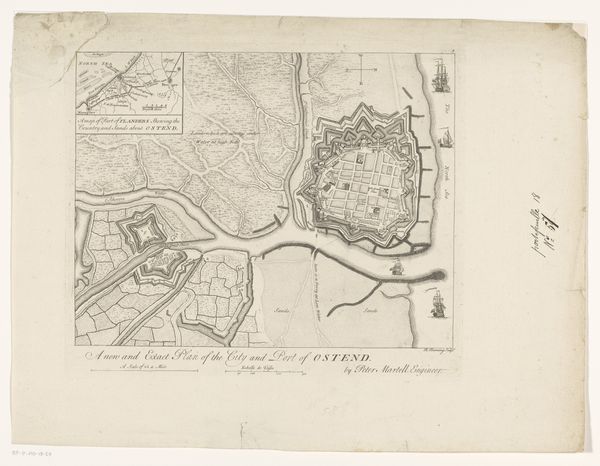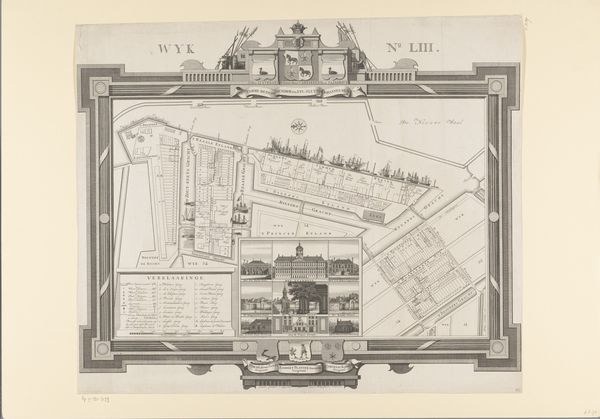
drawing, print, etching, paper, ink, architecture
#
drawing
#
aged paper
#
homemade paper
#
paper non-digital material
#
dutch-golden-age
# print
#
etching
#
sketch book
#
landscape
#
paper texture
#
paper
#
personal sketchbook
#
ink
#
sketchbook drawing
#
cityscape
#
storyboard and sketchbook work
#
sketchbook art
#
design on paper
#
architecture
Dimensions: height 283 mm, width 302 mm
Copyright: Rijks Museum: Open Domain
Curator: Editor: This is "Plattegrond van het Minderbroedersklooster te Amsterdam, 1578," an etching with ink on paper created around 1720-1770 by an anonymous artist. The level of detail is remarkable. What aspects of this map stand out to you? Curator: Consider the materiality first. Paper in the 18th century wasn’t a uniform, mass-produced object as it is today. The fibers, the process of creation, were all tied to specific regions, labor practices. How might this influence our understanding of the map itself? Editor: It gives it more of a personal touch, less industrial. The imperfections in the paper become part of the art itself, a collaboration between the artist and the material. Curator: Exactly! And what about the architectural subject matter? This isn’t just about pretty landscapes. It’s a plan, a document related to power, control, and organization of space. Editor: So, it’s less about aesthetics and more about how the physical space shaped the lives and work of the monks within the monastery? Curator: Precisely. Think about the labor involved in constructing such a complex. Then reflect on the skilled labor in meticulously documenting it in a drawing. This isn’t merely a representation. It reflects social relations embedded within the production and consumption of space. Editor: I never considered the economic side of even what looks like just a simple map before. Curator: Now, knowing how material and labor affect its form, do you view this etching any differently? Editor: Yes, I'm appreciating this drawing as the end-product of extensive physical and social activity, beyond the representation of the cityscape alone. It's changed my view on how even a simple plan represents so much.
Comments
No comments
Be the first to comment and join the conversation on the ultimate creative platform.
